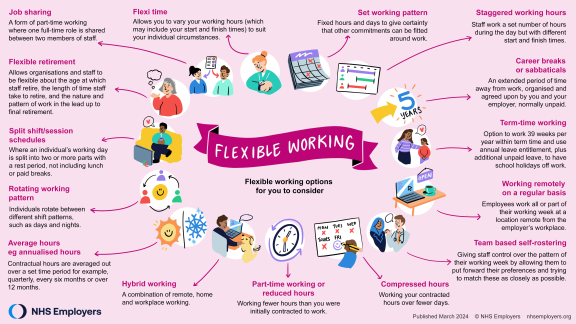What NHS organisations are doing to support flexible working

Allowing your staff to work flexibly is an important part of creating a modern and appealing employment culture across the NHS, therefore offering flexible working is one of the ways you can attract and retain a diverse workforce.
As part of the NHS People Plan, the NHS People Promise sets out a series of commitments, one of which is we work flexibly, which states: "We do not have to sacrifice our family, our friends or our interests for work".
The Long Term Workforce Plan states that employers should create cultures which give people greater choice over their working patterns, helping them achieve a better work-life balance.
To ensure the NHS remains an employer of choice and can attract talent in a competitive job market, more action is needed to increase the uptake of flexible working.
Flexible working and supporting staff with the rising cost of living
In March 2024 we heard from Kate Jarman, director of corporate affairs at Milton Keynes University Hospital NHS Foundation Trust, and Kelly Morrison, people promise manager at Lancashire and South Cumbria Foundation Trust, about the implementation of flexible working to support staff with the rising cost of living. Watch the webinar recording and view our other cost of living masterclass recordings to learn more about this work.
Good practice examples
To support you to become a more flexible employer, we've collated a range of good practice examples of initiatives in NHS trusts which support staff to work flexibly.



